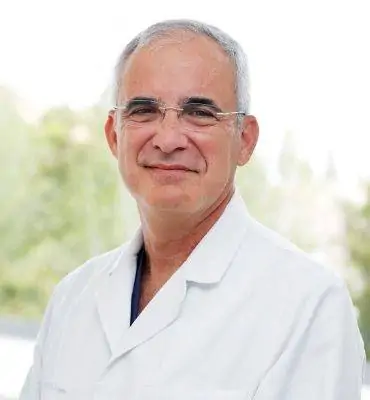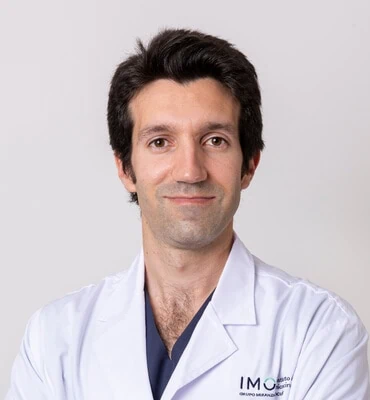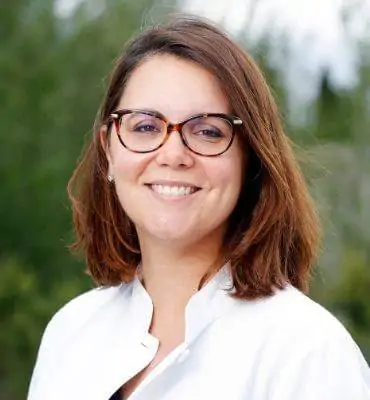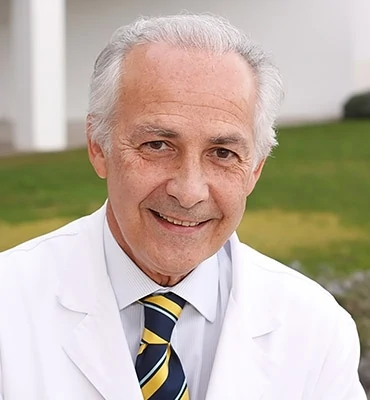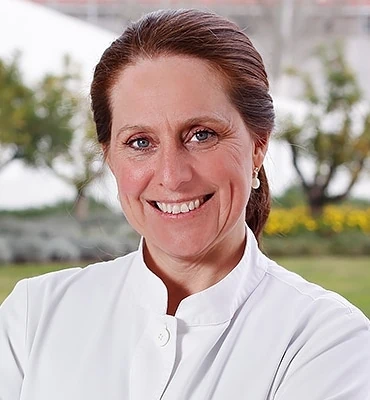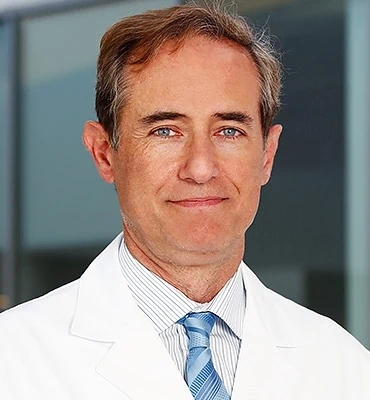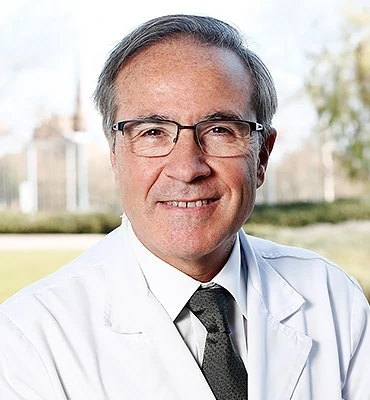What does it involve?
The laser is essentially applied in two ways. The first method is transpupillary thermotherapy, which involves heating the tumour mass for a few minutes to damage the chromosomes in the tumour cells and cause eventual atrophy. The other is photocoagulation at over 60º, which involves burning the vascularisation of the tumour to prevent the tumour mass from reaching the bloodstream by causing atrophy due to lack of blood supply. Firstly, the laser is applied to the artery that carries blood to the tumour base, then, to the tumour base, which is atrophied, and, finally, to the vein, which returns blood from the tumour base to the bloodstream.
When is it carried out?
Vascular tumours are the most common tumours to be treated with the laser, because they are the ones that require more blood supply and are, therefore, ideally suited to laser treatment.
Prior examination
In terms of vascular tumours, it is important to ensure that a systemic disease, such as Von Hippel Lindau syndrome, has not caused the tumour in the eyeball. Von Hippel Lindau syndrome is directly transmitted from parents to children and can affect both sexes; as well as suffering from tumours in the retina, patients can develop tumours in the brain, especially in the cerebellum and adrenal glands, and other locations. The disease can affect several organs and must be treated early, if it affects the eye, because, otherwise, in spite of intraocular tumours being benign, they can cause a significant loss of vision. This systemic disease usually affects both eyes.
Before the surgery
Patients should avoid strenuous exercise after surgery.
Surgery
The laser’s impact spot must be relatively large with a long exposure time and moderate intensity to avoid rupturing the blood vessels during treatment.
Risks
There are no significant risks to take into account.
Associated pathologies
Experts performing this treatment
FAQs
Eye tumours can occur on any tissue, but the most common in adults is choroidal melanoma, a malignant tumour that can be treated with radiotherapy and other treatments with notable success. Malignant tumours can also appear on the conjunctiva, the lacrimal gland and the orbit. Benign tumours can also appear, but they can be easily dried out. In children a retinal tumour known as retinoblastoma can appear, which looks like a white pupil and must be treated as soon as possible, as it can be life-threatening if appropriate treatment is not performed.
IMO Institute of Ocular Microsurgery
Josep María Lladó, 3
08035 Barcelona
Phone: (+34) 934 000 700
E-mail: international@imo.es
See map on Google Maps
By car
GPS navigator coordinates:
41º 24’ 38” N – 02º 07’ 29” E
Exit 7 of the Ronda de Dalt (mountain side). The clinic has a car park with more than 200 parking spaces.
By bus
Autobus H2: Rotonda de Bellesguard, parada 1540
Autobus 196: Josep Maria Lladó-Bellesguard, parada 3191
Autobuses H2, 123, 196: Ronda de Dalt – Bellesguard, parada 0071
How to arrive at IMO from:
IMO Madrid
C/ Valle de Pinares Llanos, 3
28035 Madrid
Phone: (+34) 910 783 783
See map in Google Maps
Public transport
Metro Lacoma (líne 7)
Autobuses:
- Lines 49 & 64, stop “Senda del Infante”
- Line N21, stop “Metro Lacoma”
Timetables
Patient care:
Monday to Friday, 8 a.m. to 9 p.m.
IMO Andorra
Av. de les Nacions Unides, 17
AD700 Escaldes-Engordany, Andorra
Phone: (+376) 688 55 44
See map in Google Maps
IMO Manresa
C/ Carrasco i Formiguera, 33 (Baixos)
08242 – Manresa
Tel: (+34) 938 749 160
See map in Google Maps
Public transport
FGC. Line R5 & R50 direction Manresa. Station/Stop: Baixador de Manresa
Timetables
Monday to Friday, 09:00 A.M – 07:00 PM

